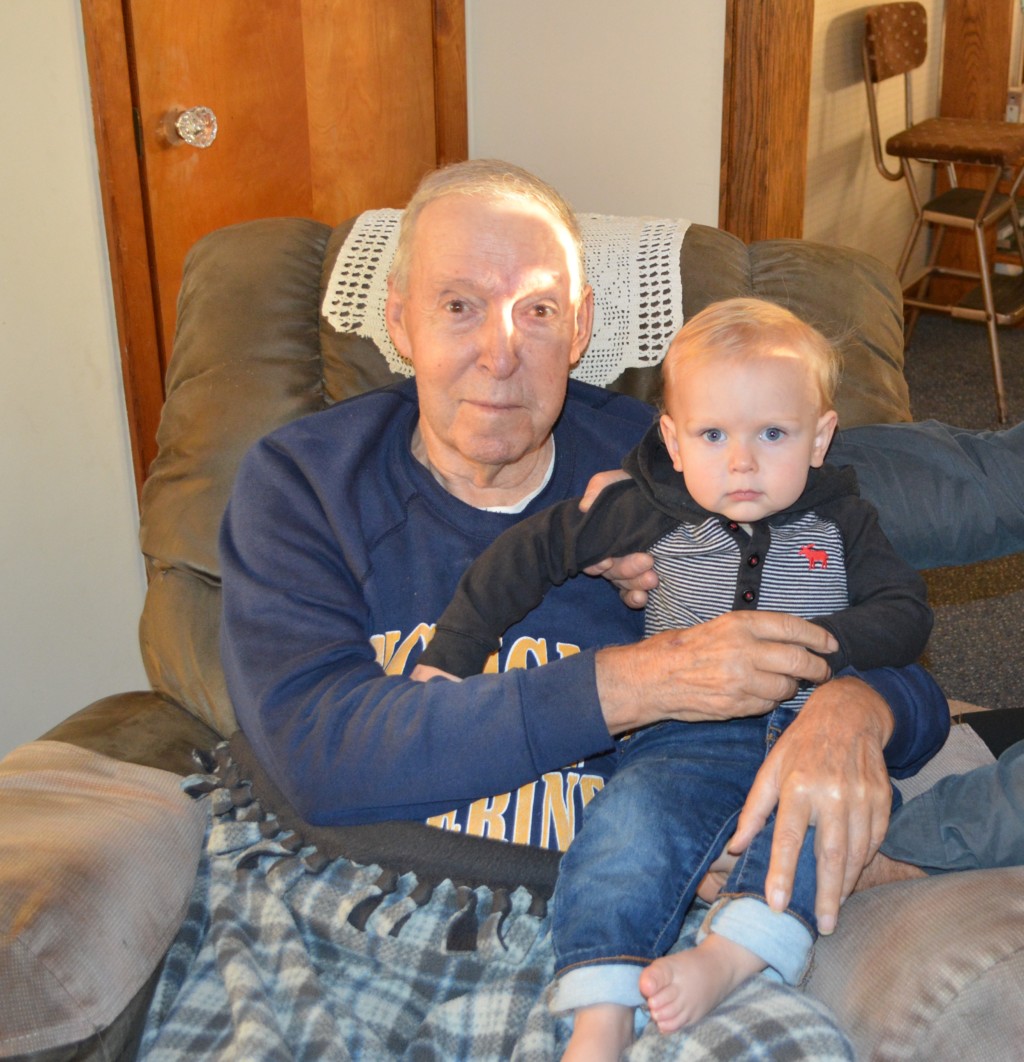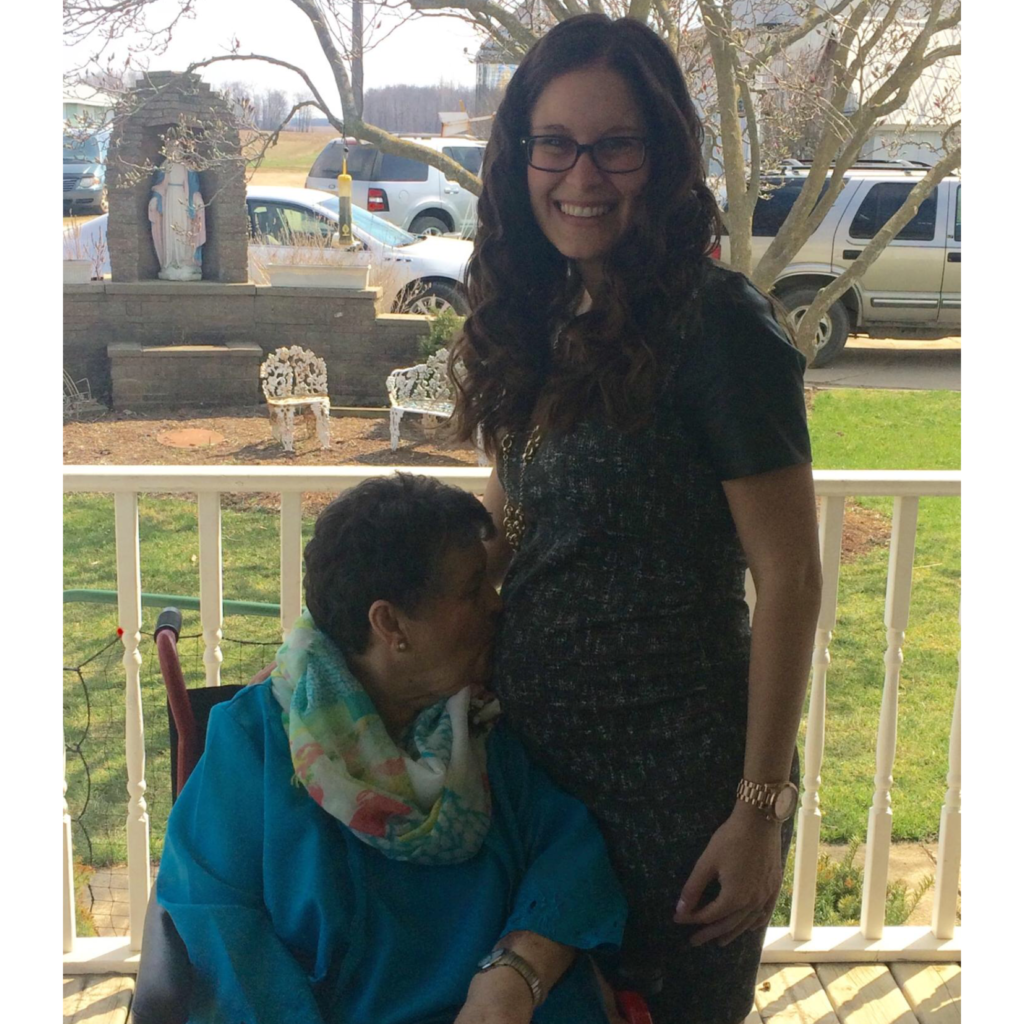I was six months pregnant when my Grandma Evie died. Of course, there is never a good time to lose a loved one, but I wished – and still wish – so strongly that she could have held on for a few more months to meet my baby and witness me become a mother. It’s a consolation to know that she saw me begin my journey as a parent, and I will always cherish my memories of us swapping pregnancy stories. (My one experience hardly compares to her fourteen pregnancies, though.)
My Grandpa Donnie passed away recently. My 17-month-old son was fortunate to have spent time with him every few months. It pains me to think that those afternoons of my grandpa sitting in his usual chair, cracking his classic one-liners will go unremembered by my son as the years pass. It has me thinking of ways to keep my grandparents’ presence felt, these people whose lives have so impacted mine. I want their stories to be told and re-told. I want my children to ask questions about them, to know their names, to feel proud of the legacy to which they belong.
Here are some ideas for creating routines and traditions to remember loved ones who have passed:
- Photos – Assemble a special photo album, a gallery wall of old photos, or a framed picture hanging in your child’s bedroom.
- Nighttime prayer or moment of silence – We have started a tradition of praying for our family members and for special intentions every night after we read bedtime stories. Now, we’ve added a moment at the end of our prayer to list those who have passed.
- Cook their favorite foods together – Food can be a strong connection to memory, especially if you are able to track down copies of their recipes.
- Honor their birthdays – Go to a place that was meaningful to them, visit their grave site, or share your favorite memories with each other over dinner.
- Names – If using a family member’s name for one of your children isn’t a good fit, or if you’re done having babies, consider a pet name inspired by your loved one, maybe using a nickname or middle name. My niece has a baby doll, Evelyn, named in honor of my grandma, and it is such a sweet way to remember her.
- Make a keepsake – Find an Etsy shop (or a talented friend) to create a “memory bear” or a quilt from old clothes.
- Create a memorial garden – Find a quiet spot in your yard to sit and reflect, maybe with a bench, swing, bird feeder, a statue, or plant some of their favorite flowers. You could consider a space inside your house, like a shelf decorated with some of their belongings, photos of them, or a candle that you light as a memorial.
- Story books – There are lots of children’s books about loss that you can read with your child as part of their bedtime routine or on special days of remembrance. You could even write an inscription about your loved one inside the cover so that your child can think of him or her for years to come. (Some book suggestions include Water Bugs and Dragonflies, When Dinosaurs Die, and Badger’s Parting Gifts.)
- Communicate – Although my son is currently too young to discuss loss, parents of older children will want to be prepared to answer difficult questions. Different people will explain death differently, in ways that are consistent with their religious/spiritual beliefs, but the most important thing is that you are open in your communication and accepting of kids’ reactions and emotions.
Have you tried any of these ideas in your family? How do you honor and remember loved ones who have passed?











